Acquisition of a transcriptionally permissive state during the 1-cell stage of mouse embryogenesis.
K E Latham, D Solter, R M Schultz
Index: Dev. Biol. 149(2) , 457-62, (1992)
Full Text: HTML
Abstract
Zygotic gene transcription initiates during the 2-cell stage of mouse embryogenesis. To learn more of the nature and timing of events leading up to transcriptional activation, we evaluated the ability of enucleated 1-cell-stage embryos to support transcription of the 2-cell-stage-specific gene(s) encoding the 70,000-Da transcription-requiring complex (TRC). Nuclei were transplanted from transcriptionally inhibited alpha-amanitin or N-[2-(methylamino)ethyl]-5-isoquinolinesulfonamide (H8)-treated 2-cell-stage embryos to either late or early enucleated 1-cell-stage recipients. Expression of the TRC gene(s) was much greater following transfer to late 1-cell than early 1-cell-stage recipients. In addition, treatment of early 1-cell-stage recipients with N6-monobutyryl cyclic AMP following transplantation of a nucleus from an H8-treated donor increased the rate of TRC synthesis to a value similar to that observed for late 1-cell-stage recipients. These results indicate that during the first cell cycle and prior to initiation of zygotic gene expression, the embryonic cytoplasm undergoes a transition from a transcriptionally nonpermissive to permissive state.
Related Compounds
| Structure | Name/CAS No. | Molecular Formula | Articles |
|---|---|---|---|
 |
N6-Monobutyryladenosine 3′:5′-cyclic monophosphate sodium salt
CAS:70253-67-7 |
C14H17N5NaO7P |
|
Protein kinase A and B-Raf mediate extracellular signal-regu...
2009-11-01 [Mol. Pharmacol. 76 , 1123-1129, (2009)] |
|
Cryptic receptors for insulin-like growth factor II in the p...
1996-06-13 [Biochim. Biophys. Acta 1282(1) , 57-62, (1996)] |
|
Expression of aquaporin 8 and its up-regulation by cyclic ad...
2003-04-01 [Am. J. Obstet. Gynecol. 188(4) , 997-1001, (2003)] |
|
Abnormal adenosine 3'.5'-monophosphate stimulation of renal ...
1989-03-01 [Endocrinology 124(3) , 1184-9, (1989)] |
|
The insulin-like effect of growth hormone on insulin-like gr...
1990-06-01 [Biochem. J. 268(2) , 353-7, (1990)] |